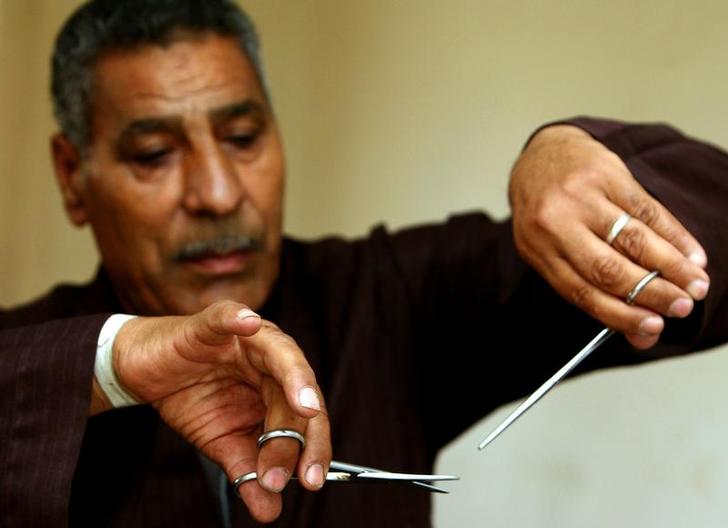Latest NEWS
- Aswat Masriya, the last word
- Roundup of Egypt's press headlines on March 15, 2017
- Roundup of Egypt's press headlines on March 14, 2017
- Former Egyptian President Hosni Mubarak to be released: lawyer
- Roundup of Egypt's press headlines on March 13, 2017
- Egypt's capital set to grow by half a million in 2017
- Egypt's wheat reserves to double with start of harvest -supply min
- Roundup of Egypt's press headlines on March 12, 2017
UN voices concern over defendants' acquittal in Egypt's first FGM trial

CAIRO, Nov 21 (Aswat Masriya) - The United Nations announced its "deep concern" Thursday after a Daqahliya misdemeanor court acquitted a doctor and a father tried on charges of female genital mutilation (FGM) in Egypt's first FGM trial.
In June 2013, 13-year-old Soheir al-Batea died at the clinic of Raslan Halawa, a physician, after undergoing FGM, marking the first prosecution since the practice was banned in Egypt.
"The United Nations in Egypt is deeply concerned by recent developments in the case of Soheir El-Batei, the victim of Female Genital Mutilation (FGM) who died in June 2013, as a result of the procedure illegally carried out against her," a statement released on UN's website read.
"There is no moral, religious or health reason to cut or mutilate any girl or woman. Traditions that demean, dehumanise and injure are human rights violations that must be actively opposed until they are ended," the statement added.
"The United Nations encourages review of current legislation to ensure that it fully protects the rights of women and girls, and that the perpetrators of such heinous crimes are brought to justice."
Mona Amin, the general coordinator of National Population Council's national project for banning FGM, said: "The story unfolded when the victim's father filed a complaint, accusing the doctor of killing his daughter after performing an FGM operation."
The investigation was pushed for by the National Population Council (NPC) in November 2013, which demanded establishing a committee of forensic experts to verify the real cause of death, Amin added.
During investigation, the father retracted from his initial police report statements where he had accused the doctor. Instead, he claimed his daughter was suffering from pelvic pain, and was diagnosed with having "excess" skin that had to be surgically removed.
Halawa has denied carrying out FGM. Instead, he stated that the victim suffered from "excess" skin which he had removed by cauterisation. He insisted that she died because of an allergic reaction to the anesthetic medication.
The coroner, assigned by the public prosecution, held the doctor responsible for failing to test Batea for allergic reactions. However, he reported that medical intervention to remove "excess" skin was "right".
Based on the results of the investigation, the doctor was charged with manslaughter. He was also charged, along with the father, with performing FGM and referred to trial.
The punishment for performing FGM is a prison sentence ranging from three months to two years or a fine of 5,000 Egyptian pounds.
At least 91 percent of Egyptian females in the age group 15-49 have undergone FGM, according to the 2008 census. Although doctors now perform 70 percent of these operations, traditional midwives and health barbers usually carried out the practice in the past.










